Contract Packaging
Contract packaging refers to the service of handling packaging and shipping operations on behalf of other companies. Since all products—from food to cosmetics—require some form of packaging, contract packagers offer a wide range of solutions tailored to meet the specific needs of different industries and products. In essence, a contract packager is a third-party provider that manages the entire packaging process, which can include everything from developing custom packaging designs to overseeing the timely delivery of the finished goods.
Businesses turn to contract packaging for a variety of reasons, but the primary driver is efficiency. Many companies lack the internal resources, equipment, or materials necessary to package and distribute their products in a cost-effective or scalable way. By partnering with a contract packaging provider, they gain access to specialized capabilities and streamlined logistics. This allows them to get their products where they need to go—packaged correctly and delivered on time—without having to manage the complex process themselves.
The History of Contract Packaging
Although some form of packaging has existed throughout history, the modern contract packaging industry didn’t gain widespread traction until the late twentieth century. A significant milestone came in 1992 with the founding of the Contract Packaging Association, the national trade organization representing the field—an event that marked the industry’s formal rise. Since 2008, the contract packaging sector has doubled in size, establishing itself as both a vital service to other industries and a thriving industry in its own right.
Looking further back, the use of tinplate, or “tinning,” was a common packaging method in eighteenth-century England. This approach laid the groundwork for the invention of canning, which was patented in 1810. Just two years later, in 1812, London saw the opening of the first commercial canning facility, setting an early precedent for industrialized packaging. By the late nineteenth century, paper-based packaging gained popularity, diversifying the materials used across the industry. Many advancements in packaging design and materials came from innovations developed for the U.S. military during wartime—especially World War II—where securely transporting weapons, supplies, and food rations was critical for field operations. These military-driven innovations would later shape the civilian packaging sector.
There is no singular inventor or company credited with founding the contract packaging industry. Rather, it evolved through a combination of companies, innovations, and shifting commercial needs. Over time, this accumulation of development solidified contract packaging as a specialized field. Its growing legitimacy is also reflected in academic recognition—most notably, the establishment of the first degree in Packaging Engineering in 1952.
Benefits of Contract Packages
Contract packaging services have proven to be a cost-effective solution for companies that lack the resources, infrastructure, or facilities to handle packaging, labeling, or transportation on their own. By partnering with contract packaging manufacturers, companies reduce the need for significant internal investment while increasing profitability. Outsourcing packaging allows businesses to save time and money—resources they can then redirect toward boosting their own production capabilities. This model also introduces greater flexibility, as companies gain access to a range of specialized packaging options they may not have been able to develop independently. In addition to increasing output speed, contract packaging offers an efficient choice for short-term or seasonal packaging needs.
One of the most valuable advantages of contract packaging is its high degree of customization. The process can be tailored to meet the unique needs of each company, whether that involves basic packaging services or more specialized solutions like bar coding, contract sewing, or thermoforming. This customization ensures that businesses only pay for the services they need, while receiving packaging support that aligns with their production goals. When considering contract packaging, it’s important for companies to evaluate their specific needs—whether a full-service, turn-key provider that manages the entire supply chain is the most effective option, or whether a more focused, less comprehensive approach will meet their objectives.
How the Contract Packaging Process Works
Contract packaging operates by organizing packaging into three key classifications: primary, secondary, and tertiary. Primary packaging refers to the material that directly touches the product itself. Secondary packaging holds together multiple units of primary packaging, and tertiary packaging encompasses the materials used for handling, storing, and transporting large quantities. For instance, if a food item is stored in a glass jar, the jar serves as the primary packaging because it comes into direct contact with the product. When several jars are placed into a box, the box becomes the secondary packaging. If those boxes are shrink-wrapped together, the shrink wrap qualifies as tertiary packaging. Similarly, if the shrink-wrapped boxes are stacked onto a pallet for storage or shipment, the pallet also functions as tertiary packaging.
To begin the packaging process, contract packagers must select the appropriate materials suited to the product they’re handling. Plastic is one of the most widely used materials due to its durability and lightweight nature. Strong plastics like high-density polyethylene (HDPE) and polyethylene terephthalate (PET) are often used for bottles, while low-density polyethylene (LDPE) is commonly used for flexible packaging solutions in both primary and secondary roles. Paper-based materials also play a key role in packaging. Paper is typically used for labels and lighter applications, while paperboard—thicker and more rigid—serves well in cartons and other forms of primary packaging. Fiberboard, even more robust, is ideal for secondary packaging due to its strength and resistance to pressure. Glass continues to be a reliable choice for primary packaging, especially for items like jars and bottles. In terms of metal, aluminum is the most frequently used. It’s ideal for cans, foil, and other containers because of its ability to retain temperature and resist leaks. Aluminum
foil also protects products from light, moisture, and other external factors that can impact shelf life. Each material requires corresponding machinery to process, seal, or shape it into packaging solutions.
Contract packaging companies can take a wide range of approaches depending on the client’s needs. In some cases, they may even manage segments of the client's supply chain, including sourcing packaging materials and delivering them directly to distribution sites. This level of involvement is highly customizable. A client might have the storage space to hold large quantities of product, but not the capability to break those quantities down into retail-ready packages. In such instances, a contract packager steps in to create smaller, consumer-friendly packaging that boosts retail appeal. Fulfillment services offered alongside packaging can also assist with inventory management, helping companies streamline operations and free up space for production activities. These services typically include material handling, inventory control, assembly, and transportation.
Customization is another core element of contract packaging. Beyond practical designs that optimize cost, usability, and material usage, aesthetic considerations—especially in labeling—play a vital role in marketability. Contract packagers often offer graphic design services to help businesses create attractive, brand-consistent labels that increase shelf presence. Private labeling, in particular, gives businesses the opportunity to elevate their product’s visual appeal and market identity, making their goods more competitive in the retail environment.
Contract Packaging Images, Diagrams and Visual Concepts
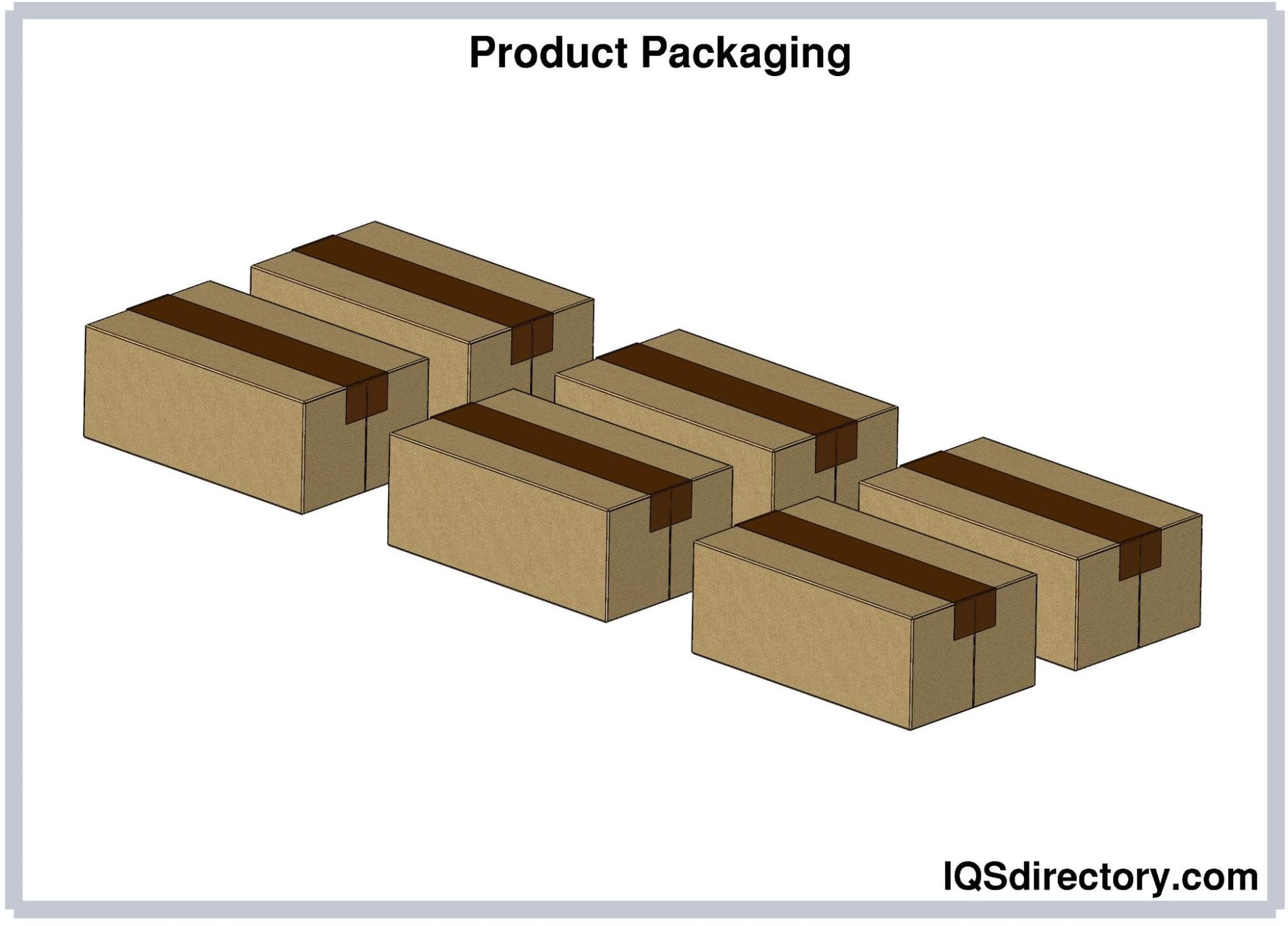 An example of what a contract packaging can produce.
An example of what a contract packaging can produce.
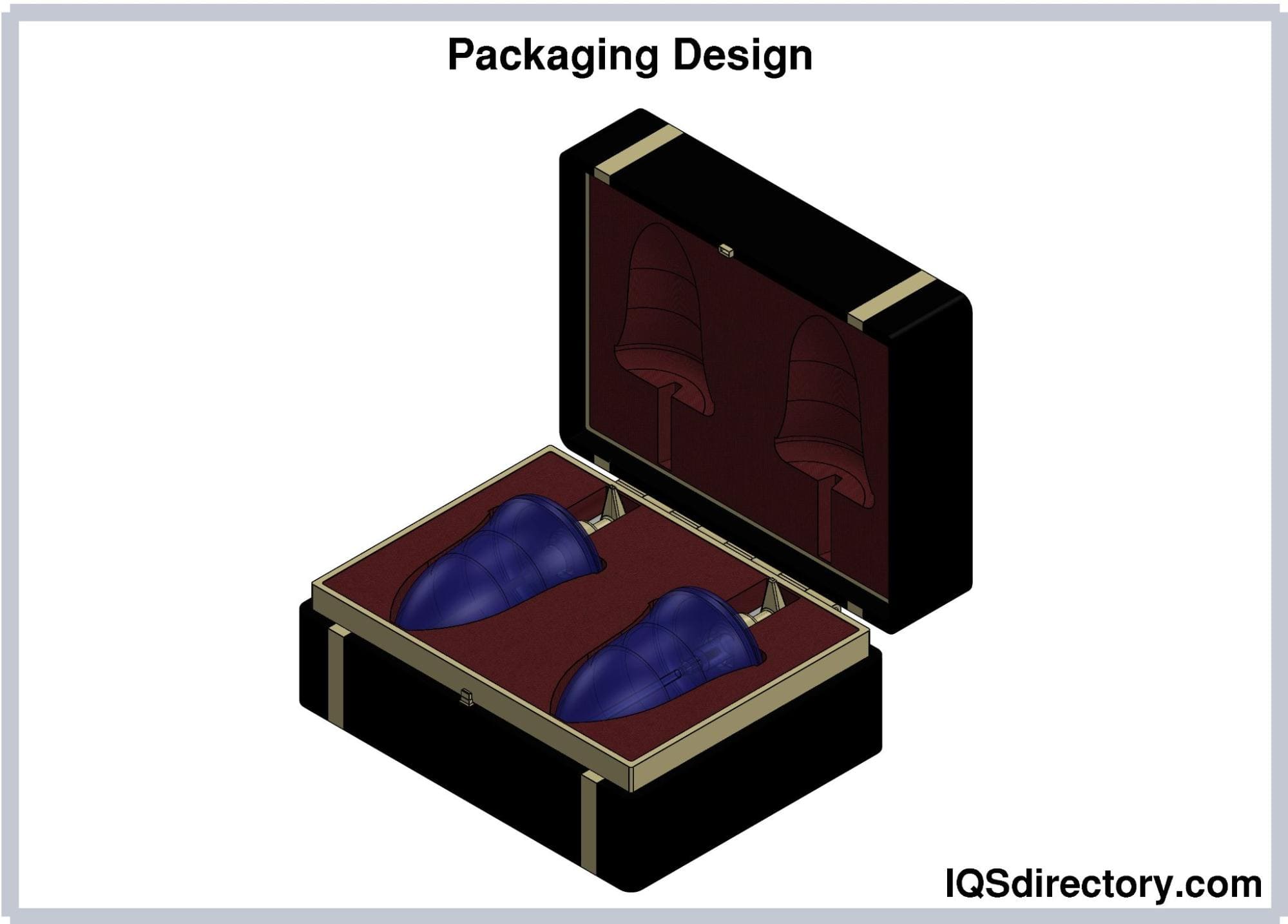 Packaging design considers brand graphics and packaging sizes in the contract packaging operations.
Packaging design considers brand graphics and packaging sizes in the contract packaging operations.
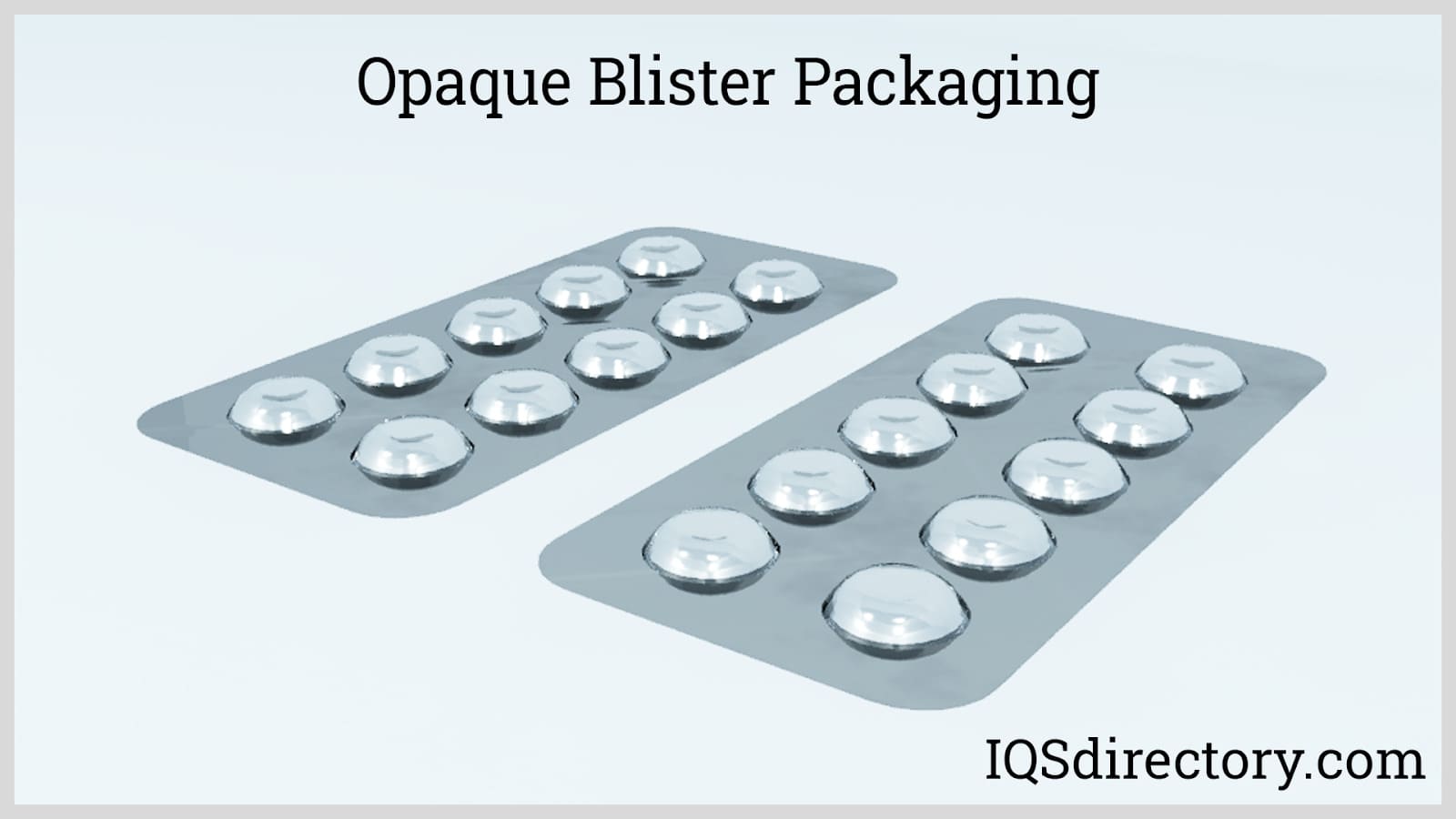 Blister packaging has an easy view of the product as it is placed between the two materials.
Blister packaging has an easy view of the product as it is placed between the two materials.
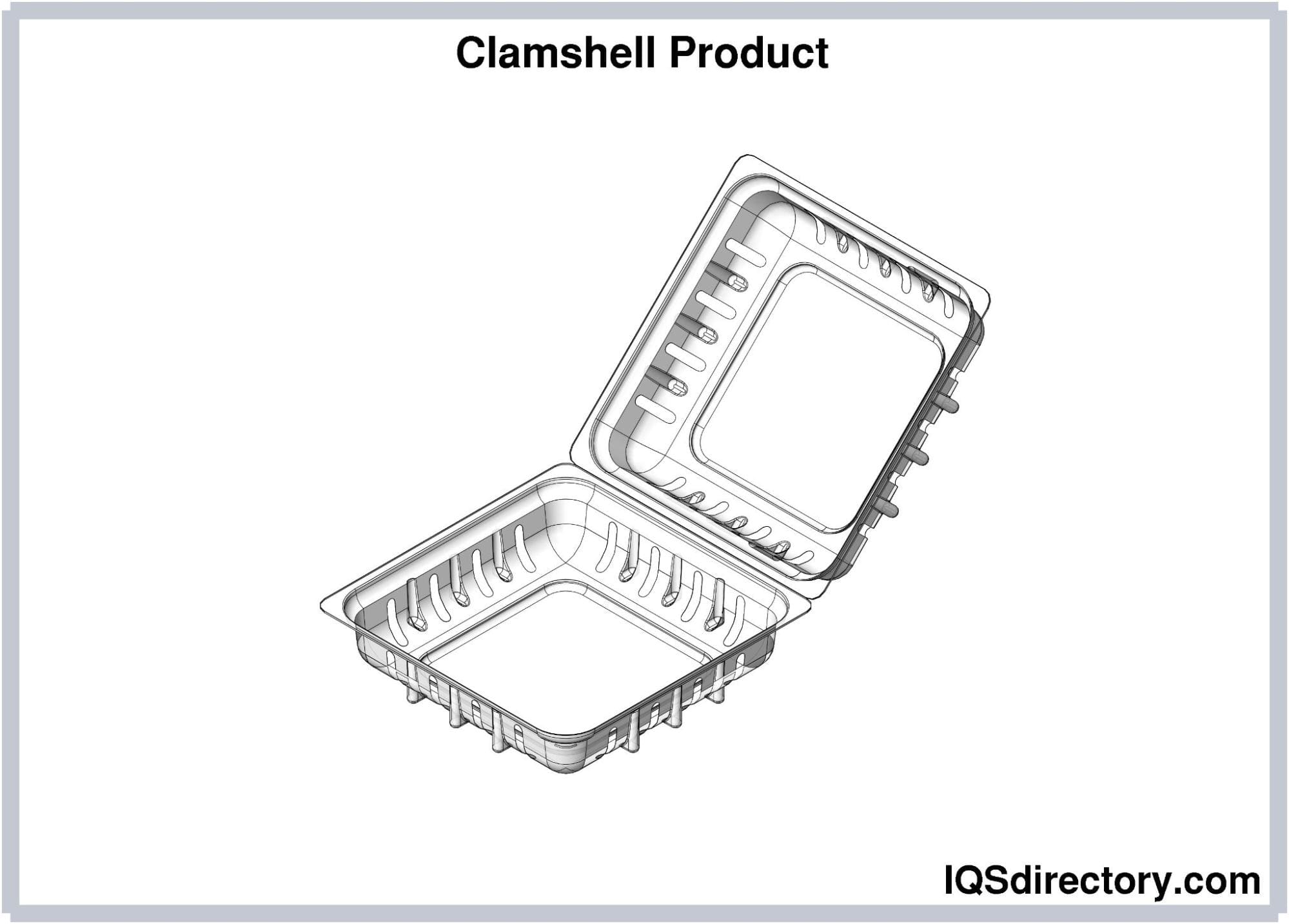 Clamshell packaging involves sealing a product within two preformed plastic sheets making it more tamper-proof.
Clamshell packaging involves sealing a product within two preformed plastic sheets making it more tamper-proof.
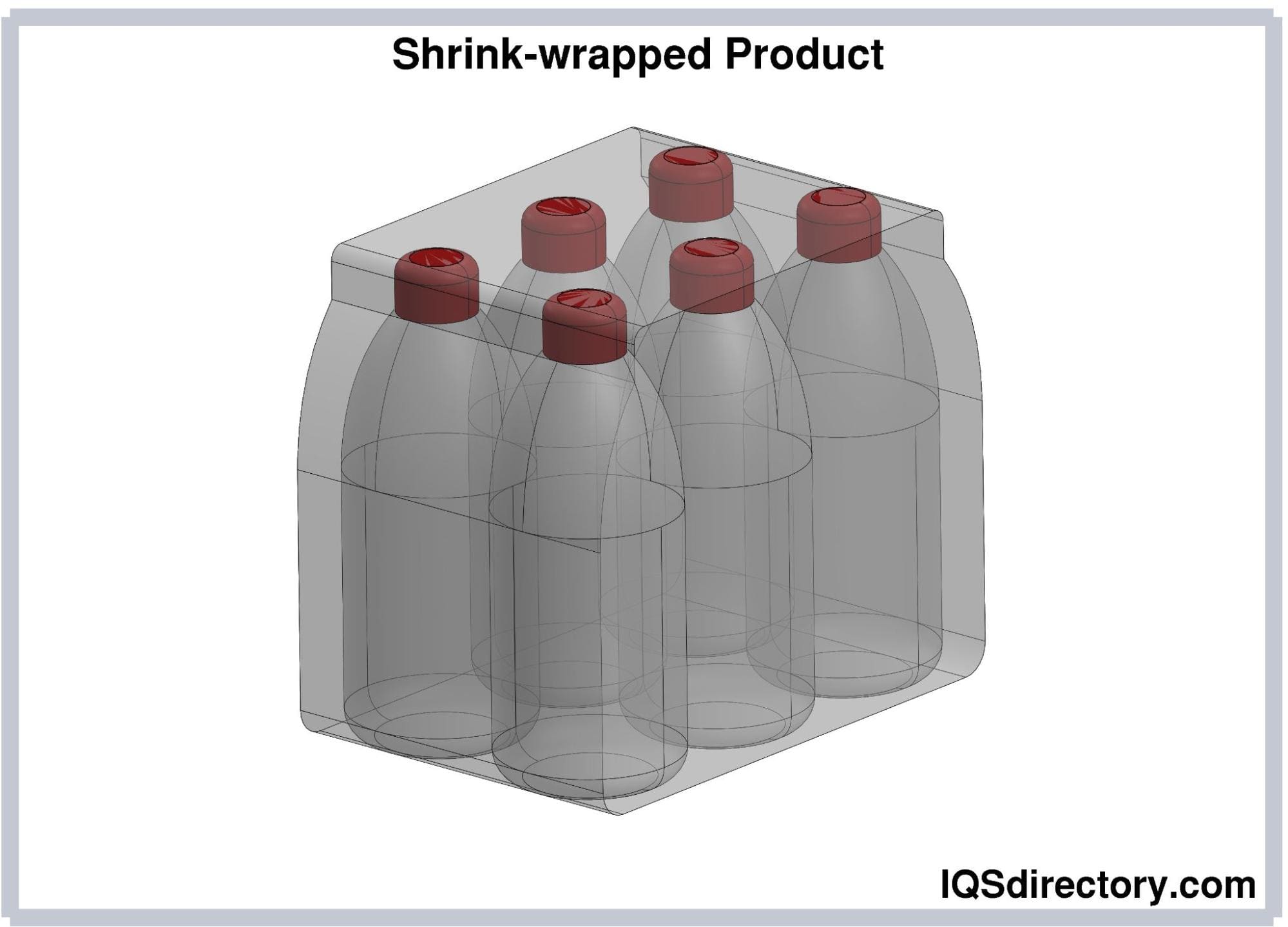 Shrink wrapping involves a plastic polymer film that is shrunk over a product as heat is applied to the shrink film, thus molding it around the product.
Shrink wrapping involves a plastic polymer film that is shrunk over a product as heat is applied to the shrink film, thus molding it around the product.
Contract Packaging Types
-
Bench Assembly
A manual packaging method where products are placed on a bench and packaged by hand.
Blister Packaging
Involves a rigid, thermoformed plastic bubble that holds a product against a backing card for display and protection.
Cartoning
The process of placing a product into a designated box, holder, or enclosure for the purposes of shipping and display.
Clam Shell Assbembly and Packaging
The production and sealing of plastic clamshell packages, typically done through automated systems. Items are inserted and securely enclosed within the clamshell.
Cosmetic Packaging
Packaging designed specifically for the storage, protection, and transport of beauty, skincare, and other cosmetic products.
Custom Packaging
A packaging solution uniquely designed to meet the specific requirements of a particular product or brand.
Die Cutting
A process used to create labels or packaging components by cutting them into custom shapes with a die.
Food Packaging
Materials used to enclose food items for shipping, storage, and retail display, designed to preserve freshness and meet safety standards.
Fullfillment Services
Comprehensive services that include material handling, inventory management, assembly, packaging, and transportation of products.
Medical Packaging
Specialized packaging for medical devices, equipment, or pharmaceuticals to ensure sterile, secure transport and storage.
Packaging Design
The visual and structural aspects of a package, including form, graphics, and function, tailored to both aesthetic and practical needs.
Packaging
Any material used to encase and protect a product during transport and while on display in retail environments.
Pharmaceutical Packaging
The packaging of medicinal products in compliance with regulatory standards set by authorities like the FDA to ensure safety, integrity, and traceability.
Polybagging
A packaging method where products are placed into plastic bags (polybags) and sealed, typically using heat.
Product Packaging
The enclosure used to protect and present a product from the point of manufacture to its end use.
Radio Frequency
A sealing process that uses radio frequency energy to create strong, permanent seals in clamshell packaging.
Shrink Wrapping
A packaging method where a product is covered in shrink film, which is then heated to form a tight, tamper-resistant seal around the product.
Skin Packaging
A technique where a plastic film is heated and tightly drawn over a product positioned on a backing card, adhering to the card to create a protective, transparent outer layer.
Stretch Packaging
A hybrid packaging method combining elements of blister, skin, clamshell, and shrink wrapping, commonly used for small consumer goods like batteries and toys.
Machines Used in Contract Packaging
In addition to the materials commonly used in contract packaging, contract packagers must also have access to specialized machines and tools to properly package various products. While certain tasks can be completed manually—such as bench assembly, where items are arranged and packed by hand—many packaging methods require the use of more advanced machinery. Blister packaging, which is often used for pharmaceutical products like pill packs, relies on plastic molding equipment to form the blister cavities. Clam shell assembly and packaging, on the other hand, requires automated heat sealing machines to securely enclose the product within the shell.
Other frequently used equipment includes label dispensers, form-fill-seal machines, and vacuum packaging systems, each playing a specific role in the packaging process. Depending on the company’s needs and capabilities, this machinery may be acquired as off-the-shelf equipment, customized for specific applications, or even developed or modified in-house. However, because packaging machinery is highly specialized and often costly, it is generally more efficient and practical for businesses to outsource their packaging needs to contract packagers rather than invest in acquiring and maintaining the equipment themselves.
Products That Use Contract Packaging
There are many contract packaging options available, making these services widely applicable across a broad range of industries. Businesses in the food sector, for instance, frequently turn to contract packaging. A company may have the facilities to produce food products but lack the ability to securely package them or prepare them for retail in a way that attracts customers. Contract packagers provide solutions that ensure safe food packaging, accurate labeling, and reliable transportation, all while preserving product integrity and preventing contamination so items reach store shelves ready for sale.
The cosmetics industry is another major user of contract packaging services. Like food, cosmetic products must be packaged to both protect the product and appeal to consumers. Elements like container shape, labeling, and color are key to presentation, while the packaging must also shield the product from contamination. Powders and other delicate materials pose additional challenges, but contract packagers are equipped to handle them with specialized containers, pouches, and packaging methods designed for sensitive materials.
Medical and pharmaceutical companies also rely heavily on contract packaging for the safe storage and transport of medications and devices. These products often require tamper-proof, sterile, and regulation-compliant packaging—needs that experienced contract packagers are well-prepared to meet. Even companies producing industrial and business-to-business products can benefit from contract packaging, especially when they need consistent, high-volume packaging that meets logistical demands.
With such a wide variety of industries making use of contract packaging, the range of products handled by these services is equally broad. Everything from makeup and skincare items to medicine, food, beverages, and industrial goods can be packaged through this process. While the food and beverage, personal care, and pharmaceutical sectors remain among the top users of contract packaging, the services are flexible enough to meet the needs of virtually any company that requires their product to be safely packaged and efficiently transported.
Things to Consider When Choosing a Contract Packager
There are many important factors to consider when selecting a contract packaging service, each of which can significantly impact the success of a project. One of the most critical considerations is the capability of the contract packager. The chosen provider must have the necessary equipment, technical expertise, and resources to meet the specific packaging requirements of the product. Requesting or reviewing a list of previously completed projects can be a helpful way to verify a packager’s capabilities and ensure they have experience with similar types of products.
Location is another key factor, as it can directly influence both delivery times and shipping costs. Choosing a contract packaging service that is situated near raw material suppliers, distribution centers, or the final destination can increase efficiency and reduce expenses. In addition to logistical concerns, flexibility is also essential. A company’s ability to adapt to unexpected challenges or changes in production schedules can make a significant difference in maintaining timelines and avoiding disruptions.
Ultimately, while there are many qualified contract packaging providers available, the goal is to find the one that aligns best with the company’s specific needs and operational priorities. Careful evaluation of each of these factors will help ensure a smooth and successful partnership.
Contract Packaging Terms
-
Adhesive
A substance used to bond materials together by external attachment.
Back Card
A card, typically made of cardboard or paper, used to mount or secure a product in packaging formats like blister or skin packaging. Back cards can feature custom printing and may include special adhesives to hold products or packaging components in place.
Bale
A compressed bundle of materials bound together using cord, strapping, or metal ties. Bales may also be wrapped for added security.
Boxboard
A category of paperboard known for its folding and scoring properties, used in box-making. It is usually delivered to contract packaging companies as flat sheets ready for conversion.
Clam Shell
A plastic packaging format with two connected halves and a hinged closure that seals the product inside, similar to a clam.
Can
A small, primary packaging container, typically made of metal, used for storing products.
Closure
The mechanism or method used to seal a container and keep its contents secure.
Collating
The act of sorting or assembling various items, often as part of a packaging or fulfillment process.
Contract Assembly
A service involving the construction, assembly, or gathering of products by a third-party provider.
Corrugated
A type of paperboard consisting of fluted paper sandwiched between one or more flat liners, commonly used for shipping containers and packaging.
Die
A tool used to cut or shape materials into specific forms or patterns during the packaging process.
FDA (Food and Drug Administration)
A regulatory body that sets and enforces standards for food packaging, safety, and labeling in the United States.
Gloss
A shiny, reflective finish applied to surfaces like packaging, vinyl, or coatings for aesthetic or protective purposes.
Hand Assembly
The process of putting together products manually or with a combination of manual and automated labor.
Heat Sealing
A method of joining two packaging materials using heat, often employed in plastic or film packaging.
Jar
A wide-mouthed container made of glass, plastic, or ceramic, typically used for storing food, cosmetics, or pharmaceuticals.
Outsourcing
The practice of contracting out manufacturing, packaging, or assembly services to a third-party provider.
Pack Out
The final step before shipment, involving the completion of packaging and preparation of the product for delivery.
Pick & Pack
A logistics term for retrieving a product from inventory, packing it appropriately, and preparing it for shipment.
Relabeling
Replacing or applying a new label over an existing one on a product, often to reflect new branding, regulations, or information.
Reverse Logistics
The process of handling returned goods, including repackaging, refurbishing, or redistributing products to meet resale or reuse standards.
Screen Printing
A printing method where ink is pushed through a mesh screen using a squeegee or air pressure to apply designs directly onto packaging surfaces.
Secondary Operation
An additional process performed after the main production or packaging line, often requiring special treatment or customization.
Strapping
A flat or circular strip used to reinforce bundles or secure items inside a package or shipping container.
Stretch Wrap
A flexible film that stretches under tension and clings tightly to products, offering secure packaging and protection during transport.

